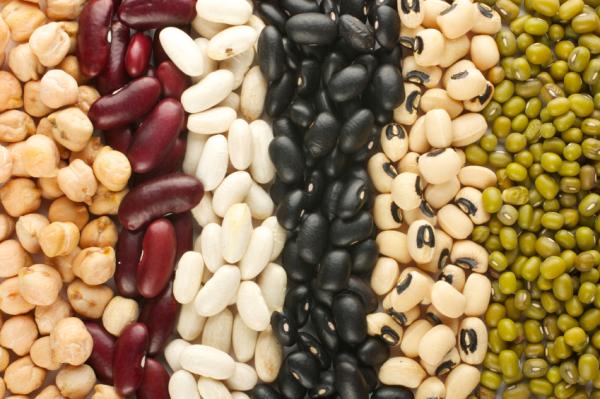Food for thought as legumes step into the limelight in the tropics
- Monday, 15 October 2007 00:00

Legumes are nutrient-rich and commercially attractive. For the promise they hold for food security and incomes, legumes deserve greater attention from the research and development community: plenty of food for thought there too.
The need for more attention is obvious—in the words of Mr Denis Mwashita, a small-scale farmer at the Chinyika Resettlement Scheme in Bingaguru, Zimbabwe, “Beans have always carried disease, but from the little we harvest and eat, we and our children have developed stomachs.”
15 October 2007
FOR IMMEDIATE RELEASE FOR WORLD FOOD DAY, 16 OCTOBER 2007
Food for thought as legumes step into the limelight in the tropics
Legumes are nutrient-rich and commercially attractive. For the promise they hold for food security and incomes, legumes deserve greater attention from the research and development community: plenty of food for thought there too.
The need for more attention is obvious—in the words of Mr Denis Mwashita, a small-scale farmer at the Chinyika Resettlement Scheme in Bingaguru, Zimbabwe, “Beans have always carried disease, but from the little we harvest and eat, we and our children have developed stomachs.”
To address impediments to higher production, a new cross-continental research and development project covering Africa and Asia turns the limelight on legumes. Funded by the Bill & Melinda Gates Foundation, the Tropical Legumes Project will develop improved varieties of selected legumes, more resilient against drought, pests and disease.
The timing is opportune, given the unprecedented confluence of knowledge and opportunities through partnerships, which are key to the project’s success. Today, there is greater confidence in genomics, among other areas, to tackle contemporary agricultural challenges, and national agricultural research programmes are increasingly much better prepared to take advantage of--and use--new technologies.
But beyond technologies, getting these improved seeds to farmers is where the research rubber really hits the road: Tropical Legumes does not stop at technologies for seed improvement but goes further down the road to seed delivery. The project will reproduce and distribute these improved seeds to farmers, in close collaboration with national research programmes.
For details on World Food Day, visit: http://www.fao.org/wfd2007/index_wfd2007.html
